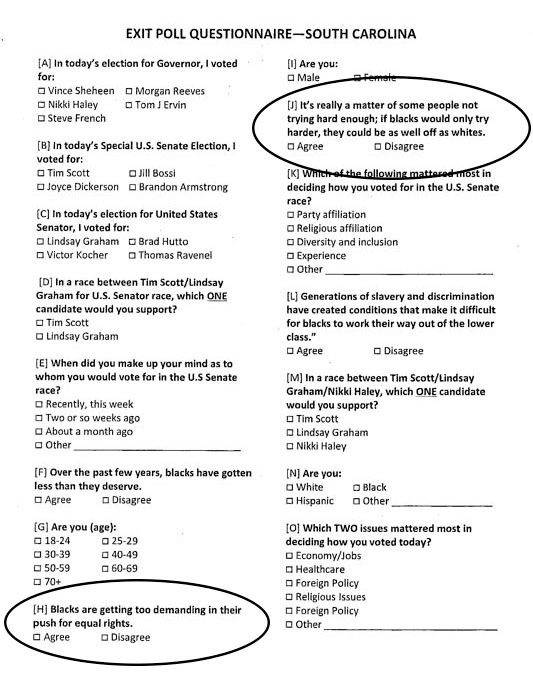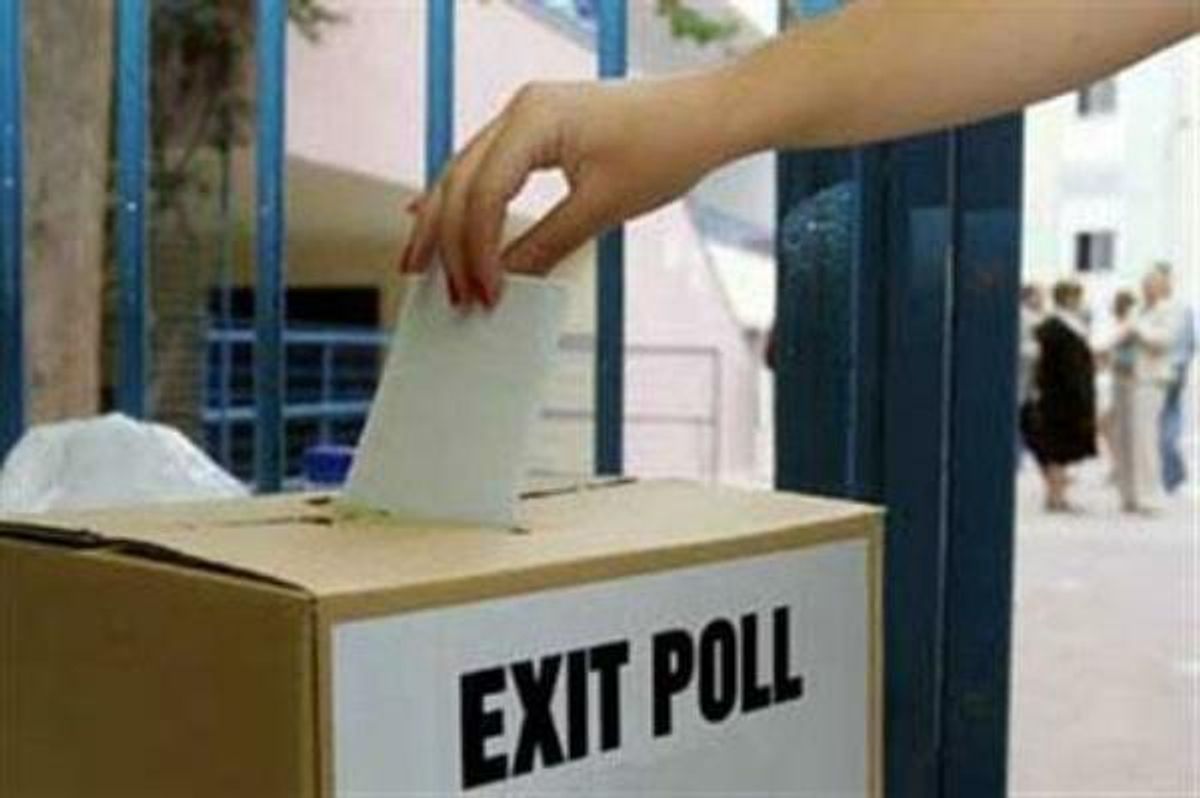On
A local news station reported voters across the ideological spectrum found the South Carolina exit polls to be offensive, with several questions prompting bipartisan distaste. Voters were asked whether black people worked hard enough, whether slavery was still a hindrance, whether black people tried hard enough to advance themselves economically, and perhaps most controversially, whether black people had pressed too hard for equal rights.
Clemson University political science professor David Woodard insisted the poll questions were not meant to be provocative and were merely intended to gauge public sentiment following Scott's election. A collaborator told the news outlet negative reaction to the questions came from both sides of the aisle:
Woodard partnered with Paul White Jr., a doctoral candidate in political science from University of South Carolina on this project. White handed out polls in Columbia.
"You had liberals getting offended. You had conservatives getting offended. It was all over the place," said White.

Mashable observed the questions were atypical for political polling purposes and were instead derived from a psychological test created in the 1980s to identify subtle racial biases:
[I]t turns out that the poll was worded this way on purpose. Researchers took the questions, word for word, from the Modern Racism Scale — a psychological test developed in 1986 that can be used to determine an individual's inherent discriminations.
Around 1,000 South Carolina voters were given the exit poll after the

